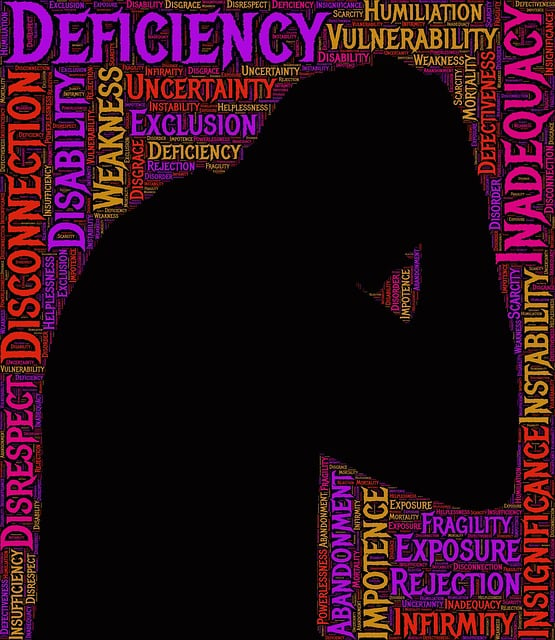Crafting a successful mental wellness podcast series requires understanding and segmenting diverse listener needs. Offer either structured therapy episodes with practical tools or discussion-based series covering broader topics. Engage listeners with varied, relevant themes like self-awareness exercises and anxiety relief strategies, and incorporate guest experts for insider knowledge. High-quality production, including clear audio, editing, and accessibility features, enhances engagement. Strategically distribute episodes, use compelling descriptions, and foster community interaction to expand reach and create a supportive mental health space.
“Unleash the power of mental wellness through podcasting! This comprehensive guide takes you on a journey from understanding your audience’s diverse needs in mental health, including specific angles like therapy and anger management for adults, to crafting compelling content. We explore the art of choosing between therapy or discussion series formats and mastering production techniques for accessibility. Learn how to build a community around your podcast, ensuring each episode resonates with listeners seeking support and growth.”
- Understanding Your Audience: Defining Mental Health Needs and Preferences
- Choosing the Right Podcast Format: Therapy vs. Discussion Series
- Content Creation: Topics, Guest Selection, and Storytelling Techniques
- Production and Editing: Ensuring Quality and Accessibility for Listeners
- Distribution and Engagement: Building a Community Around Your Podcast Series
Understanding Your Audience: Defining Mental Health Needs and Preferences

Understanding your target audience is a crucial step in crafting a successful mental wellness podcast series. To cater to a wide range of listeners, it’s essential to define and segment different mental health needs and preferences within your audience. Many individuals seek therapy for adults struggling with various issues, including anger management, self-esteem improvement, and communication strategies. By recognizing these diverse needs, you can create content that resonates with specific listener profiles.
For instance, some episodes could focus on providing practical tips for managing anger in daily life, while others might delve into building inner strength through mindfulness techniques. Incorporating discussions on topics like improving self-esteem and enhancing communication strategies will further cater to a broader audience. This targeted approach ensures that your podcast series not only attracts but also retains listeners by offering valuable insights and solutions tailored to their unique mental health preferences.
Choosing the Right Podcast Format: Therapy vs. Discussion Series

When producing a podcast series focused on mental wellness, one key decision is choosing between a therapy-oriented or discussion-based format. For topics like anger management, a therapy series can be highly effective, providing listeners with practical tools and techniques to address specific issues. These episodes often follow a structured approach, guiding users through exercises and strategies that promote self-reflection and personal growth. This format is particularly beneficial for complex subjects where professional guidance is essential.
On the other hand, a discussion series allows for a broader range of topics within mental wellness, including burnout prevention strategies for healthcare providers and cultivating emotional intelligence. Here, experts and hosts can engage in dynamic conversations, exploring different perspectives and offering valuable insights to a diverse audience. This approach encourages listeners to consider various aspects of their mental health and well-being, fostering an engaging and interactive learning experience.
Content Creation: Topics, Guest Selection, and Storytelling Techniques

In crafting content for a mental wellness podcast series, choosing engaging and relevant topics is key. Episodes could cover a wide range of subjects tailored to diverse listener needs, such as self-awareness exercises designed to enhance emotional intelligence, anxiety relief strategies for managing daily stress, or in-depth discussions on complex issues like anger management—a crucial aspect of therapy for adults. Incorporating varied themes ensures the podcast remains dynamic and appealing to a broad audience.
Guest selection plays a vital role in shaping each episode’s impact. Inviting experts in psychology, mental health advocacy, or personal development as guests brings diverse perspectives and insider knowledge. Storytelling techniques, from narrative examples to compelling case studies, can make abstract concepts tangible and relatable. For instance, discussing emotional healing processes through storytelling not only educates listeners but also offers a therapeutic experience, fostering a deeper connection with the content.
Production and Editing: Ensuring Quality and Accessibility for Listeners

The production and editing process plays a pivotal role in crafting a high-quality mental wellness podcast series that resonates with listeners. Starting with clear audio recording, this involves selecting appropriate equipment like microphones, headphones, and sound-absorbing spaces to mitigate background noise, ensuring a crisp and understandable delivery of content. Professional audio editing software is then employed to enhance clarity, adjust volume levels, and remove any unwanted sounds or pauses, creating an engaging listening experience.
Additionally, accessibility for all listeners is paramount. This includes incorporating subtitling or captions for those with hearing impairments and providing transcripts for users who prefer reading alongside the audio. For segments focusing on therapy for adults or anger management, offering specific mental wellness journaling exercises guidance within the episodes can empower listeners to actively engage with the content. Moreover, weaving in empathy-building strategies throughout the series fosters a supportive atmosphere, encouraging open dialogue and deeper connection with the podcast community.
Distribution and Engagement: Building a Community Around Your Podcast Series

After producing engaging content for your mental wellness podcast series, distribution and engagement are key to building a community around your show. Share episodes across various platforms to reach a wider audience, including popular streaming services, social media channels, and dedicated podcast directories. Utilize compelling show notes and episode descriptions that incorporate relevant keywords like therapy for adults, anger management, mindfulness meditation, and self-care routine development for better mental health.
Encourage listener interaction through comments sections, social media groups, or dedicated online forums. Offer exclusive content or bonus materials to loyal followers, fostering a sense of community. Host live Q&A sessions or workshops to discuss episode topics in real-time, providing an opportunity for listeners to connect with you and each other. By building a strong community around your podcast, you can create a supportive space where individuals feel empowered to prioritize their mental health through practices like conflict resolution techniques.
Producing a mental wellness podcast series, particularly focusing on therapy for adults and anger management topics, involves understanding your audience’s needs and preferences. By choosing the right format, creating compelling content, and mastering production and editing techniques, you can build an engaging community. Distribution strategies that foster listener interaction will ensure your podcast resonates with those seeking support and guidance in their mental health journeys.














